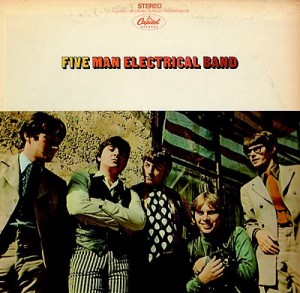 Getting voted off the island is like being thrown under the bus, except more people do it to you.
Getting voted off the island is like being thrown under the bus, except more people do it to you.
The reality show, Survivor, gave votes to players so that the majority could send losers off the island, out of the show. Everyone got a secret ballot in the war of all against all.
Survivor is democracy in action, right?
Doctors and Democracy
When everyone votes directly on issues, we call it direct democracy. When we elect representatives – who are supposed to represent us, not their party – we call it representative democracy.
Voters send representatives to parliament to speak for all of us, doctors included. Politicians speak for everyone in their riding, not just the mob that funded their election campaign. Politicians are supposed to have ideas of their own and not just parrot their party leaders.
We elect politicians to speak for doctors and protect them like every other minority group in society.
Democratic Despotism
Over 150 years ago, Alex d’Tocqueville warned about democratic despotism. He described a kind of despotism that grew from a too fervent or uncritical devotion to the sovereignty of the people. Despotism arises when the majority democratically blesses a despot in trampling on the rights of others. (What Tocqueville foretold: a despotic democracy.)
Democracy fails when politicians ignore the rights and freedoms of minority groups.
Rights, Duties and Handouts
Do rights mean handouts, freebies? Do doctors have rights?
Everyone demands his right to publicly funded services. Most of the time, rights are just another way to take something that is not yours without calling it stealing.
Rights relate to our understanding of liberty. In his famous essay on liberty, Isaiah Berlin said that positive liberty assumes someone else provides for it. Positive rights (liberty) put duties on someone else to meet the demands of the rights in question.
If you demand the right to education or healthcare, then the government has the duty to pay for it. (People used to talk about education and healthcare as privileges of citizenship.)
Positive rights demand handouts.
When doctors complain about government trampling their rights, they do not mean positive rights.
Berlin described a more basic kind of right: the right to be left alone, to not be attacked or have your property stolen. Negative rights (liberty) let you form free associations and act according to your conscience. They include the right to live free of tyranny and oppression; the right to pursue and practice a career in the way you see best.
Negative rights demand the right to be left alone.
Mobs, Doctors and Democracy
The founders of Western democracy feared mobs like the Jacobins in the French Revolution. Advanced societies speak for minorities the mob would otherwise devour.
This means protecting the rights of the weak. But it also means protecting the rights of special people who develop rare genius, like Steve Jobs or Bill Gates. If we allowed mob rule, Jobs and Gates would have had their successes stolen by the majority, long before we got to enjoy their inventions.
Western democracies were designed to protect the rights and freedoms of all from the tyranny of the majority, and the state.
Doctors – Time to Fight?
Doctors have been voted off the island. They’ve been thrown under the bus while other groups get contracts – teachers, nurses and police.
No one else gets cuts, four years in a row. Doctors are ignored by politicians and most of the media.
Is it right that:
- It is illegal to practice medicine outside of the provincial insurance plan?
- The Province of Ontario cut MD fees in 2012, 2013, 2014 and 2015?
- Premier Wynne will claw back fees doctors billed for seeing patients who needed care?
- Ontario blocked new doctors from practicing in the team models they were trained in, and expected to fill?
- New docs were sent back to fee for service (FFS). Team care is to FFS as Tim Horton’s is to a private doughnut shop.
- The CPSO demands ‘effective referrals’ even if doctors believe it will not benefit their patient? The CPSO can take away their license for refusing.
- The CPSO restricts doctors’ right of association?
- They demand MDs start doctor-patient relationships with all patients who walk through the door – if patients fall within the scope of a doctor’s training – even if doctors do not believe they will be able to meet patients’ demands and expectations.
Failed Democracy
Modern society requires you to fight for your rights. Doctors cannot depend on elected representatives. MPs do not know the issues and cannot (or do not want to) understand them. Medicare has grown up and changed.
Doctors, democracy has failed you. Stop expecting patients to care about fee cuts. Stand up and fight. Write letters. Challenge government usurpation of care. Prepare to fight. A lawsuit will not save you. Claw-backs are looming on top of the >25% loss in your net income since 2012.
If you plan to keep practicing in Ontario, all doctors will have to fight for their rights: to care for patients, to fair treatment by government, to free association and to free enterprise. What are you prepared to do?



